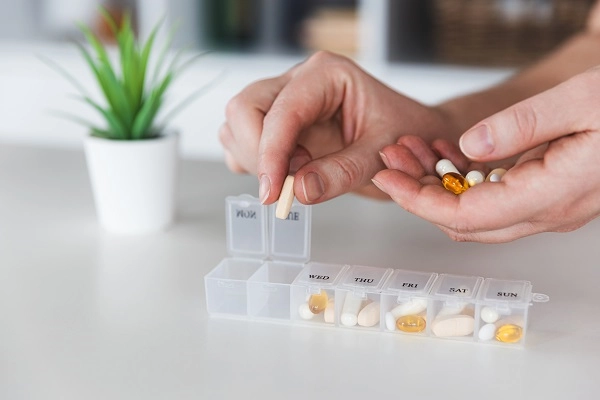Are you getting enough vitamin D?

Most of us have been brought up with the old adage “an apple a day keeps the doctor away.” We know, of course, that eating an apple each day is not the only thing that will keep us healthy. The larger message is that being mindful about our nutrition can help keep us from getting sick as often.
More recently, our attention in that area has turned to taking vitamin D. Why all the fuss?
What is vitamin D?
There are actually two kinds of vitamin D: vitamin D2 and vitamin D3. Vitamin D2 is present in plants and yeast while vitamin D3 comes from animal sources.
The main thing vitamin D is known for is its role in building healthy bones. The body cannot absorb calcium (the main component of bone) if vitamin D is not present. More recently, though, we have begun to celebrate it for a myriad of other reasons. It supports our immune system, helps us regulate inflammation and even has neuroprotective qualities.
There are a number of researchers who have even suggested it might help us in the fight against COVID-19 (though the research is incomplete).
How can we get vitamin D?
There are two ways we can get vitamin D. One way is through our skin. When we are exposed to the sun, our skin manufactures its own vitamin D (which is a pretty neat trick, when you think about it). The second way we can get it is by way of our diet.
Why should Oregonians care?
According to Adrian Gombart, a principal investigator with the Linus Pauling Institute at Oregon State University, about 70 percent of the population in the United States has insufficient levels of vitamin D. This is especially true during the winter season when our access to sunshine goes down. But even when we do have frequent sunshine, many of us wear sunscreen. That’s an excellent strategy to reduce our risk of skin cancer, but it is also reducing our ability to absorb vitamin D in the process.
This is the primary reason so many medical experts recommend that most Oregonians take a vitamin D supplement. We simply aren’t getting what we need from the natural sources we have relied upon in the past.
How much is enough?
Just because something is good for us doesn’t mean that more is always better. Because vitamin D is stored in fat, it is possible to take too much of it. When we do, it can become toxic. For that reason, it is wise to speak with your doctor before taking on a daily dose. That having been said, for most healthy people, taking 600 IU per day is perfectly healthy and not likely to lead to any vitamin D toxicity.
Want more information?
If you’re interested in finding out more about small changes you can make to your routine so you can improve your health, the Community Health Education Center is here to help. You can reach us by phone at 503-814-2432 or you can find us on our website at www.salemhealth.org/chec